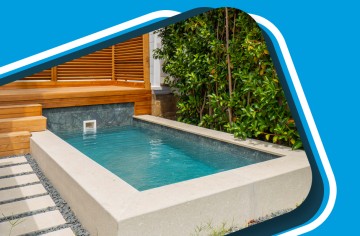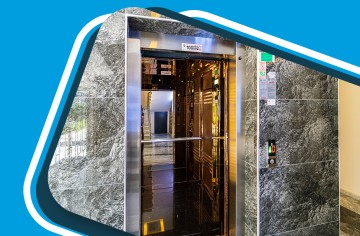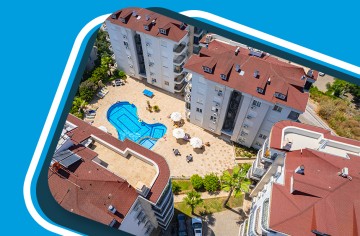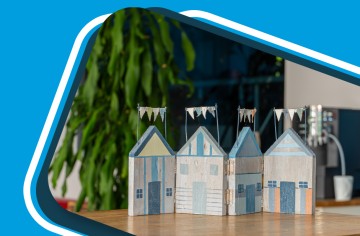
Havuz (Swimming Pool) – Meaning in Turkish Real Estate

Havuz (pronounced hah-vooz) is the Turkish word for swimming pool. In the context of Turkish real estate, it refers to any artificial or natural water basin designed for swimming, relaxation, or aesthetic purposes within a property.
In Turkey, a havuz can be a key feature of residential properties, including villas, apartments in gated communities (site), or holiday homes. It may be:
- Private – Exclusively for the use of a single property owner (e.g., a villa’s backyard pool).
- Shared – Accessible to residents of a complex (e.g., an apartment site or hotel).
- Indoor/Outdoor – Located inside a building (e.g., spa pools) or outside (e.g., garden pools).
- Infinity/Standard – Designed with a vanishing edge for visual effect or as a traditional rectangular pool.
Properties with a havuz often command higher prices, especially in coastal regions like Antalya, Bodrum, or Istanbul’s luxury districts. The term may appear in property listings alongside details like size (e.g., 50 m² havuz for a 50-square-meter pool) or type (e.g., ısıtmalı havuz for a heated pool).
In legal documents, such as the Tapu (title deed) or sales contracts, the presence of a havuz may be noted under property features or shared amenities. Maintenance costs (e.g., cleaning, heating) are typically outlined in the aidat (monthly service fee) for shared pools.
| Turkish Synonym | English Translation | Notes |
|---|---|---|
| Yüzme havuzu | Swimming pool | Formal term, often used in legal or technical contexts. |
| Plaj havuzu | Beach pool / Lagoon pool | Refers to pools designed to mimic natural beaches, common in resorts. |
| Isıtmalı havuz | Heated pool | Specifies pools with temperature control, popular in colder regions. |
| Olimpik havuz | Olympic pool | Standard 50-meter pools, rare in private properties. |
| Çocuk havuzu | Children’s pool / Kiddie pool | Shallow pools designed for safety, often adjacent to main pools. |
| Sonsuzluk havuzu | Infinity pool | Pools with a vanishing edge for a seamless visual effect. |
| Kapalı havuz | Indoor pool | Located inside a building, often in hotels or high-end residences. |

It means 'swimming pool' in English.
'Havuz' (pronounced *ha-vooz*) is the Turkish word for 'swimming pool.' In property listings, it indicates the presence of a pool—whether private, shared, or part of a residential complex.
Common variations include 'örtülü havuz' (covered pool), 'açık havuz' (open-air pool), and 'sonsuz havuz' (infinity pool). Always check the listing details to confirm the type and access rights.
Yes, pools must comply with local safety laws.
Turkish law requires swimming pools ('havuz') in residential properties to meet safety standards. These include fencing, non-slip surfaces, and, for shared pools, lifeguard provisions in some municipalities.
Private pools in villas or apartments must also follow zoning laws. Violations may result in fines or mandatory modifications. Always verify compliance with the local 'belediye' (municipality).
Pools may increase taxes and shared maintenance costs.
A 'havuz' can raise the 'emlak vergisi' (property tax) due to higher property value. For apartments, shared pools add to 'aidat' (monthly maintenance fees), typically €20–€100 extra, depending on size and upkeep.
Private pools in villas incur higher cleaning, chemical, and repair costs (€1,000–€3,000 annually). Some complexes charge seasonal fees for pool maintenance (May–October).
Covered vs. open-air pools—key for climate and usage.
'Örtülü havuz' is a *covered* (indoor or retractable-roof) pool, ideal for year-round use, especially in colder regions like Istanbul or Ankara. 'Açık havuz' is an *open-air* pool, common in coastal areas (Antalya, Bodrum) for summer use.
Covered pools often have higher maintenance costs (heating, ventilation) but extend the swimming season. Open pools are cheaper to run but may close in winter.
Access depends on ownership or rental terms.
Foreign property owners in Turkey have equal rights to shared 'havuz' facilities if they own a unit in the complex. Renters must confirm access with the landlord, as some complexes restrict pool use to owners only.
Gated communities ('site') often require a key card or fob for pool entry. Check with management about rules for guest policies and opening hours.
An infinity pool, popular in luxury coastal properties.
'Sonsuz havuz' (literally *endless pool*) is the Turkish term for an *infinity pool*, designed to merge visually with the horizon. These are most common in high-end villas and resorts in coastal regions like:
• Antalya (Kalkan, Belek)
• Muğla (Bodrum, Fethiye)
• İzmir (Çeşme)
• Istanbul (Bosphorus waterfront)
Infinity pools require precise engineering and higher maintenance, reflecting in property prices (often +20%–50% premium).
Typically weekly, but varies by season and complex.
Shared 'havuz' in Turkish apartment complexes ('site') are usually cleaned **1–2 times per week** during peak season (June–September). Maintenance includes:
• Chlorine/pH balancing (daily checks)
• Filter cleaning (weekly)
• Tile scrubbing (bi-weekly)
• Winterization (October–April in colder regions)
Luxury complexes may offer daily cleaning, while budget sites might reduce frequency. Fees are covered by 'aidat' (maintenance payments).
Modesty and noise rules apply in shared pools.
Turkish cultural norms for 'havuz' use include:
• **Swimwear:** Bikinis and swim trunks are acceptable in tourist/resort areas, but one-piece suits are preferred
in conservative neighborhoods or family complexes.
• **Noise:** Loud music or shouting is frowned upon, especially during 'iftar' (Ramadan) or early mornings.
• **Hygiene:** Showering before entering is expected; some pools ban street shoes on deck.
• **Timing:** Avoid peak prayer times (Friday afternoons) in religious areas.
Luxury resorts are more lenient, while local complexes may enforce stricter rules.
Also read


Taksit (installment) – what it means in Turkish real estate

Teklif (Offer) – Understanding the Term in Turkish Real Estate

Havuz (Swimming Pool) – Meaning in Turkish Real Estate

Kat mülkiyeti kanunu (Condominium Ownership Law)

Asansör (Elevator) – What It Means in Turkish Real Estate

Bina (Building) – Understanding Turkish Real Estate Terms

Damga vergisi (stamp duty) in Turkey – explained for buyers

Emlak (Real Estate) in Turkey – A Simple Explanation for Foreign Buyers
